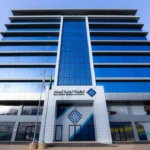The official spokesperson for the Infrastructure Projects Center in the Riyadh region, Saleh Al-Zwaid, confirmed that the “Infrastructure Projects Code” has set working hours for infrastructure project excavations from 7 AM to 6 PM, prohibiting any work outside these hours. Additionally, work is banned during holidays, including weekends, festive holidays, and official holidays.
The code considers the project lifecycle, starting from strategic planning.
Al-Zwaid made these remarks during a press conference held by the Center at its headquarters in Riyadh today, announcing that the “Infrastructure Projects Code” will come into effect starting tomorrow, Thursday, August 7, 2025. He emphasized that the code is a professional regulatory document containing numerous technical standards that must be applied to infrastructure projects in the Riyadh region.
Al-Zwaid noted that the code accounts for the project lifecycle, beginning with strategic planning, through initial designs and licensing, up to project execution, closure, operation, and maintenance. It also establishes a unified external identity, whether in appearance, signage, or reinforcing excavation work with metal barriers to protect workers on-site.
He highlighted requirements for overhead barriers in sensitive locations leading to government facilities or tourist areas, along with designated working hours for infrastructure project sites in Riyadh, particularly in residential areas. Work hours are set from 7 AM to 6 PM, with work prohibited outside these times, as well as during holidays.
He added: “There are also sustainability and worker safety requirements, including a uniform dress code and technical specifications for on-site workers, along with a comprehensive system aimed at improving excavation efficiency, quality, and visual aesthetics.”
According to the Center, the Infrastructure Code serves as a unified regulatory and technical guide for infrastructure projects, providing a standardized reference for government and service entities, contractors, consultants, and laboratories. It enables them to access the necessary technical and regulatory requirements for planning, coordinating, executing, and monitoring infrastructure work related to telecommunications, energy, water, sewage, roads, and similar projects. This includes projects by government and private entities, as well as major projects across the entire Riyadh region, encompassing the capital Riyadh, governorates, and villages in the area.






